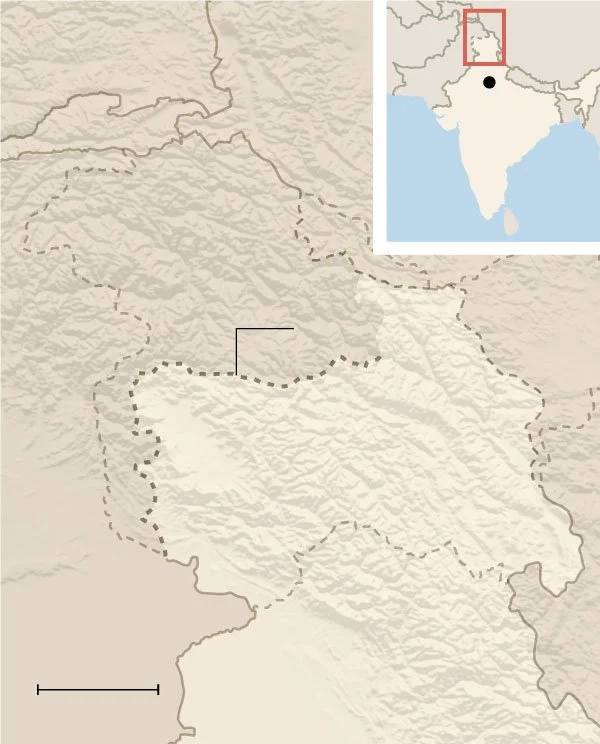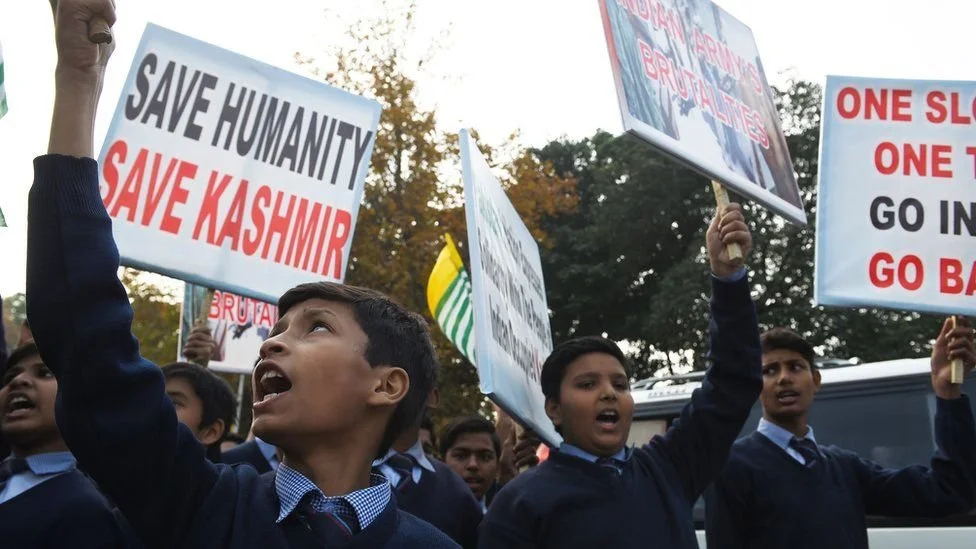On the 2019 Conflict in Kashmir
Inside the heavily militarized zone of Kashmir, a father is carrying his sick son. The child is burning with fever, but the lockdown has kept them from finding a doctor for two days. “I tried going there [the doctor’s] just now, but they came with sticks and started beating women, children, all of us, like we were sheep. Is this what we call democracy?” He tells the New York Times.
There are numerous stories like this coming from the very troubled state of Kashmir after India’s government scrapped a law called Article 370 that allowed Kashmir to have a separate constitution, a state flag and autonomy over its internal administration or self-government. This means that essentially Kashmir was almost completely independent. That is, until India’s government revoked this special status in a presidential order. Kashmir has rapidly become a dangerous area as India sends troops in. Harsh curfews have been imposed and all internet cut off, resulting in zero communication with the outside world. This is devastating for those who have relatives outside, especially during the time of Eid, a major Muslim holiday, when many people were unable to contact their families. Many residents say that Kashmir, once their home, now feels like a prison-- the government of India is tearing families apart. It seems unreasonable that a ‘democracy’ would so radically reduce the rights of their people without taking a vote or listening to the voices of those
harmed. Instead of going back into war with Pakistan, India should be working to solve the issue in a more civilized way. If the countries just communicated more effectively, they wouldn’t be harming so many of their people.
In 1947, when India split in two and gained independence from the British, the whole country was a collection of small states ruled by kings. Each king was given a choice of whether to be part of India or Pakistan, usually based on what the majority religion of their state was. The King of Kashmir was Hindu, although most of his subjects were Muslim. His state was under an attack led by Pakistan, so he agreed to join India on the conditions of Article 370, and they provided him aid. Eventually, this left Kashmir as one of the only Muslim-majority states in India. Decades later, India is ignoring the voice of the Kashmiris and abusing their human rights. Their freedom has been snatched away with strict curfews, mentioned above, that prevent people from leaving their houses. The state has run out of baby food and all supplies are tight. The people of Kashmir are not being listened to, as they protest. “We want freedom!” is a cry that echoes through the heart of the 12.5 million inhabitants.
India and Pakistan have been fighting over Kashmir since they gained independence, and where has it gotten them? Absolutely nowhere. For the civilians who live in the war zone, every day is gamble. 35-year-old Ahmad tells The Washington Post, “Anyone can pay with his life.” This conflict has been a constant tension in Kashmir for three decades, and finally, everyone is tired of it. “I’m wondering why they can’t settle it peacefully,” says 13-year-old Neha, a student in New York Times writing course. If India and Pakistan keep ramming heads, they will both suffer more damage than needed and most likely won’t make much progress in the negotiation. Too many civilians are being harmed in these wars and there are definitely more effective and peaceful ways to handle this issue.
For example, if the leaders of both countries had conversations where they communicated to each other their motivation for making the decisions they did, they could reach a compromise.
Many people say that it is right for India to send out forces and defend their land, but this has already happened four times before, without a good conclusion, and that is four times too many. Even though Pakistan is attacking with force, India is also partly to blame for the bloodshed. It is important that in a democracy, the people are heard and feel heard, which is not happening right now. It is true that Pakistan, as well as India, should be working to make peace and have peaceful discussions rather than repeatedly firing at each other when there are many innocent people stuck in the middle.
So many people’s lives are being destroyed by greedy politicians who don’t consider the people they are harming. So many civilians are caught in the crossfire, injured or even killed because they needed to get food. So many orders sent out without thinking twice about the harm that afflicts the people in the state. There are so many better ways to solve problems like these, but instead we are bombing and shooting and shelling, like a deadly game of chicken. If only people realized that so much could be solved by peaceful conversations and votes-- we don’t need to use violence. According to BBC news, in 2018 50 people were killed on the Indian side of the line of control and 36 on the Pakistani just in cross-firing. Mirza Waheed says; “There were people dying everywhere getting massacred in every town and village, there were people being picked up and thrown into dark jails in unknown parts…there were multitudes of dead bodies on the roads, in hospital beds, in fresh martyrs' graveyards and scattered casually on the snow of mindless borders.” We need to end this pointless slaughter and give voice to those being silenced.
Sources:
https://www.nytimes.com/2019/08/05/world/asia/india-pakistan-kashmir-jammu.html
https://www.bbc.com/news/world-asia-50826419

